RadRhino Rear Wheel Removal Guide
The video and instructions below will show you how to remove and reinstall the rear wheel on a 2017 RadRhino. The process will be similar for most Radrhino models.
Tools Needed:
- Wooden blocks to prop up the bike
- Flat side cutters
- 4 mm Allen wrench
- 18 mm wrench
- 10 mm wrench
- A camera
- A torque wrench with a 4 mm Allen bit
- A few zip ties
- Nitrile gloves (optional)
Follow the instructions below to remove and reinstall the rear wheel.
Remove the Wheel
- Get the bike ready for maintenance. Turn off the bike, remove the battery, and press MODE to discharge remaining power.
- Shift the bike into 7th gear. Lean the bike on the kickstand, rotate the cranks forwards, and shift the bike into 7th gear so the chain moves to the smallest cog.
- Flip over the bike. Set the handlebar grips on the blocks to protect the LCD display from damage while performing maintenance.
- Locate and unplug the motor cable. The motor cable is located by the chainstay. Snip zip ties as needed and pull the connector directly apart, without twisting, to unplug.
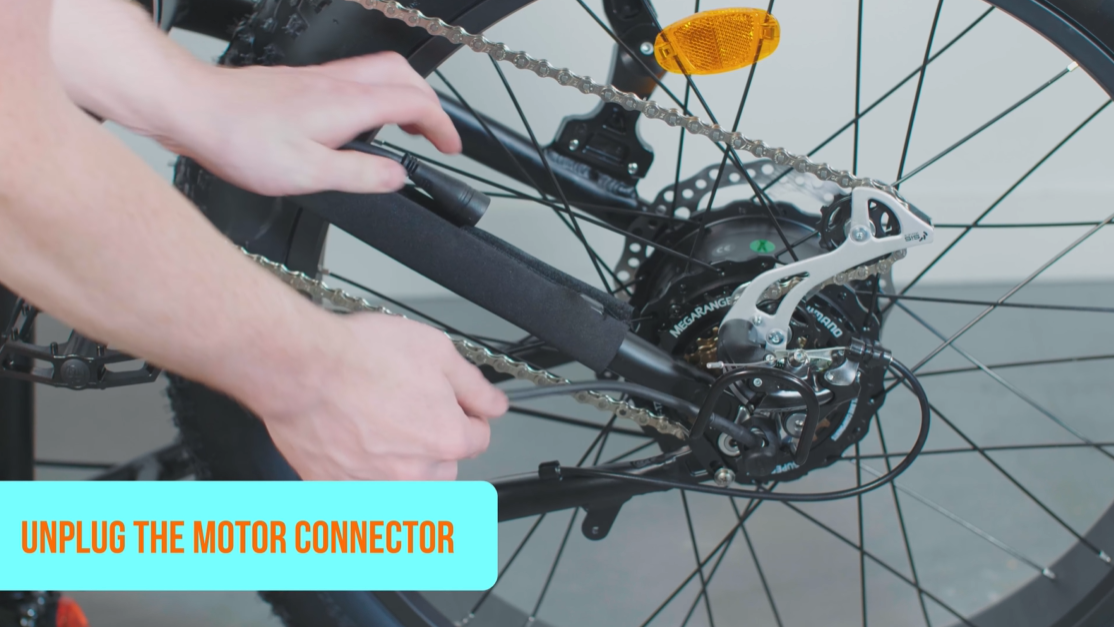
- Remove the torque arm bolt. Use a 4 mm Allen wrench or Phillips head screwdriver (depending on model year) to remove the torque arm bolt and washers. If needed, use a 4 mm Allen wrench to remove the bashguard bolts to access the torque arm bolt. Keep the washers installed on the bolts and set the hardware and bashguard aside.
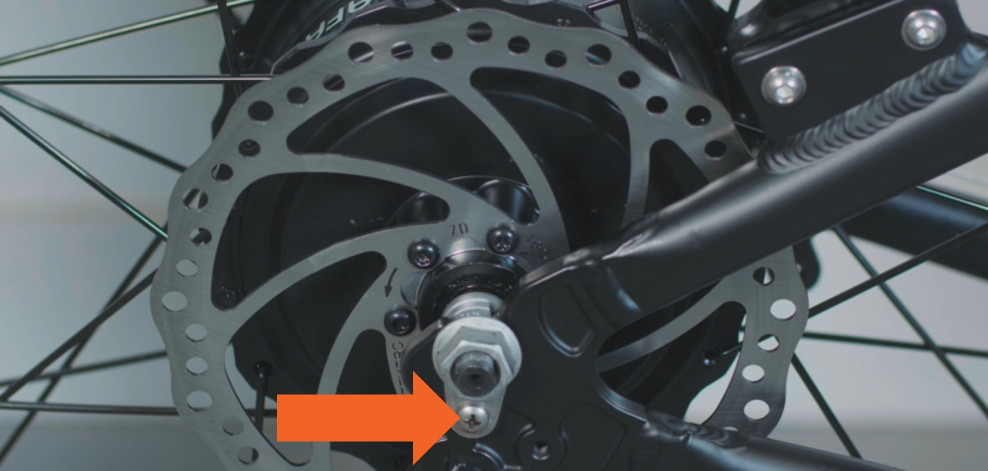
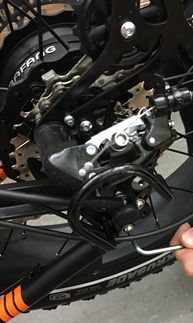
- Loosen the axle nuts. Use an 18 mm wrench to loosen (but not remove) the axle nuts just enough so the wheel can be removed. Do not remove the axle nut or washers completely because the orientation of the hardware is very important for safety.
Note: We recommend taking a photo of the order of the washers and additional hardware on the motor axle to help with reinstallation.
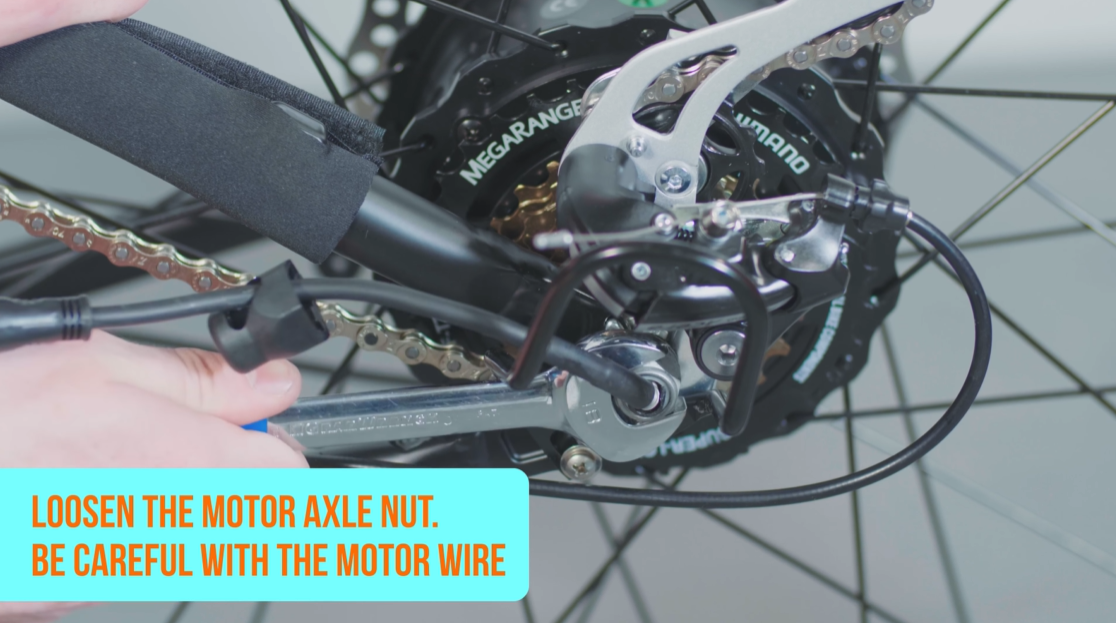
- Pull the derailleur body toward the back of the bike and remove the wheel. If the rear wheel is difficult to remove, rock the wheel back and forth while lifting, without touching the brake rotor. Lift the chain off of the cog.
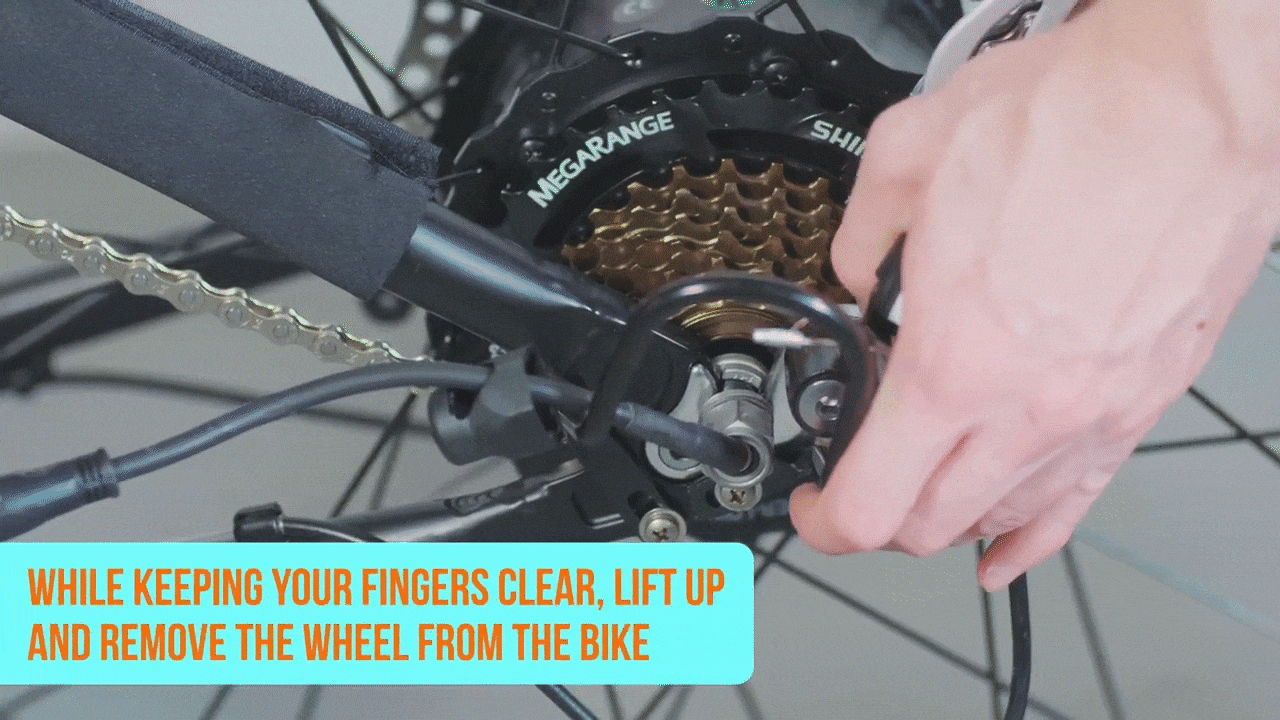
- Perform necessary maintenance. Once the rear wheel is removed, change the tube or tire, swap in a new wheel, etc.
Reinstall the Wheel
- Ensure all hardware is ready to be installed in the correct order. Refer to the images below, which apply to most models, or the photo taken in a previous step.
Brake rotor side of the wheel:
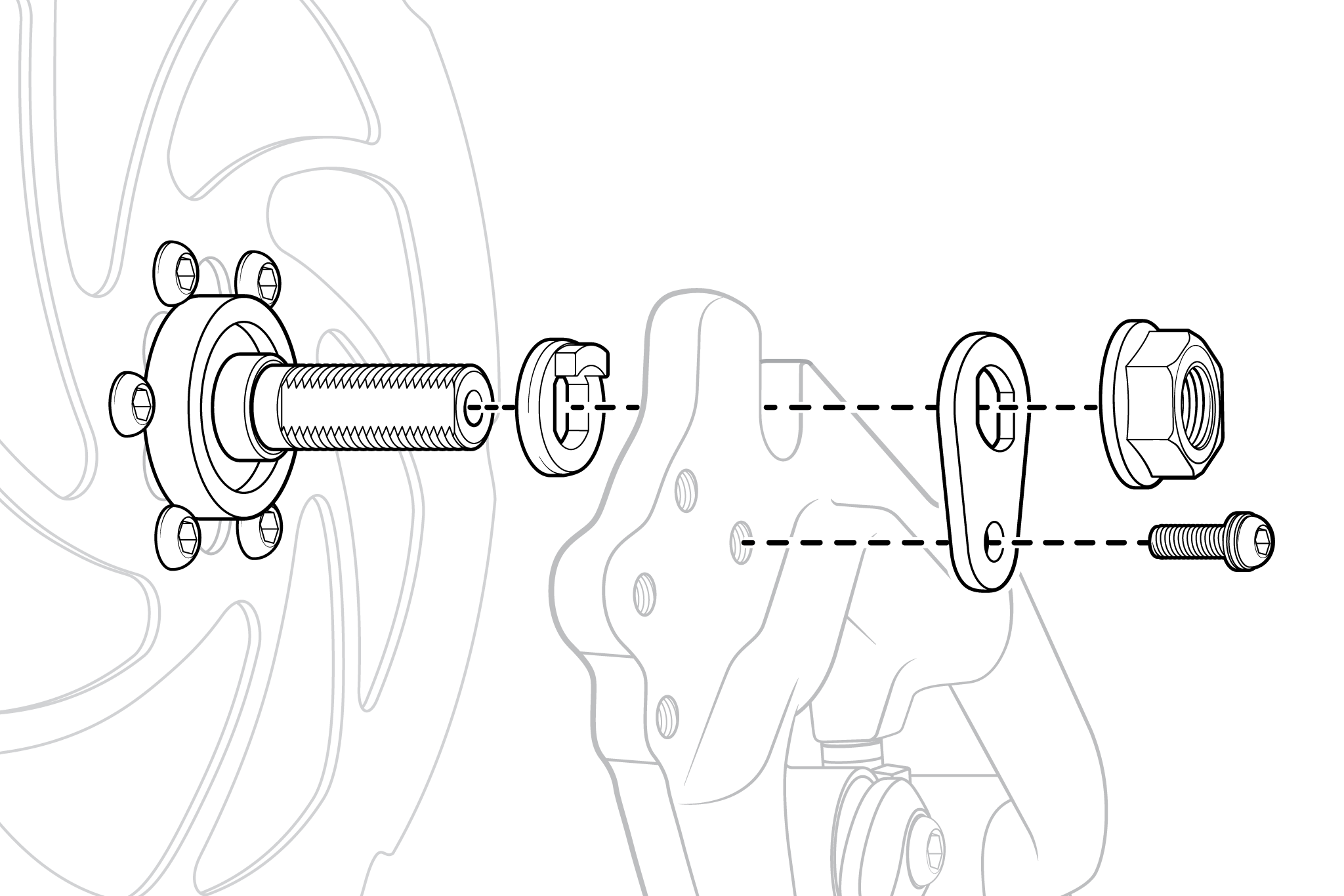
Derailleur side of the wheel:
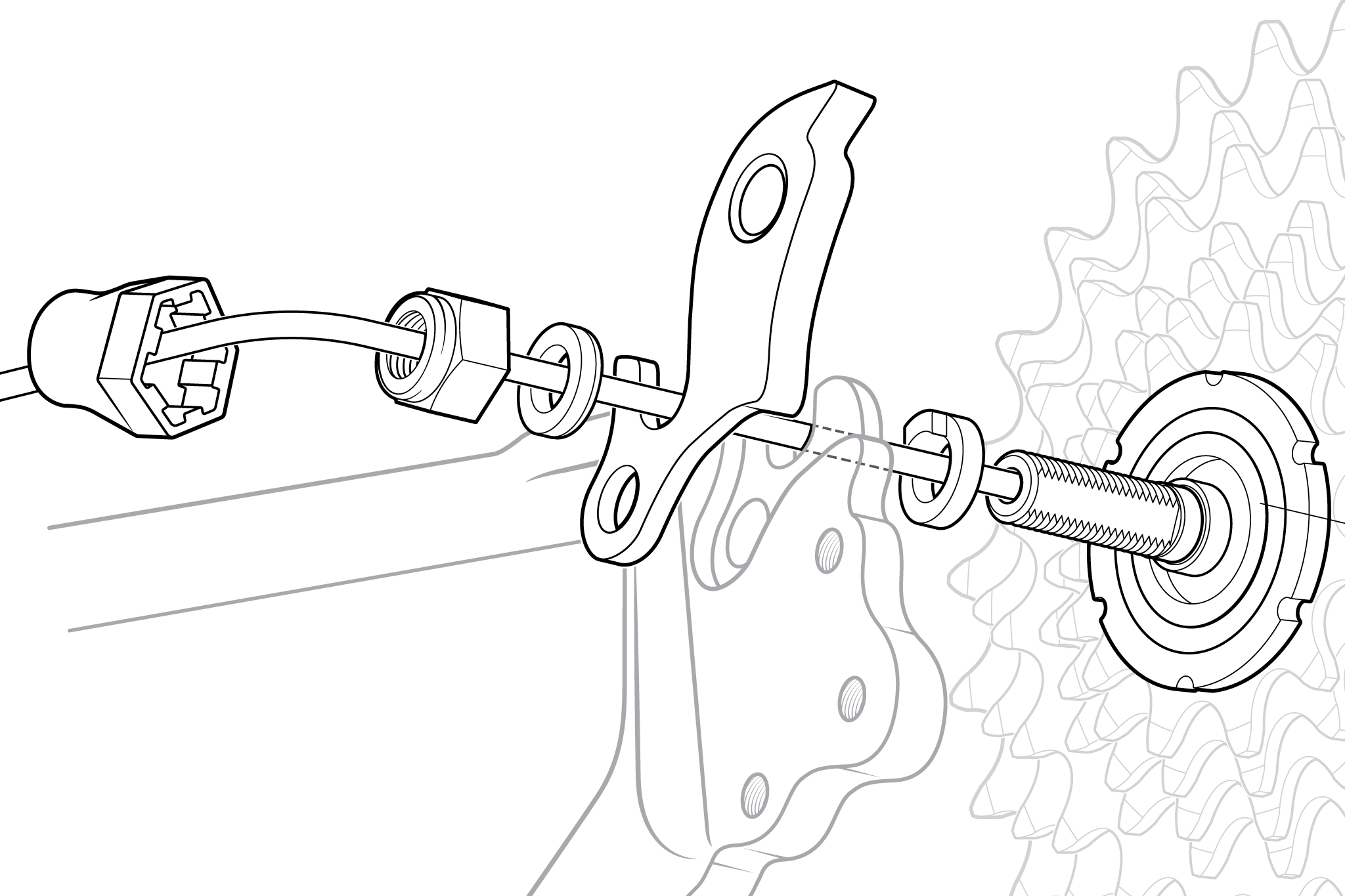
- Reinstall the wheel. Pull back on the derailleur body and route the chain onto the smallest cog, then place the wheel in the dropouts.
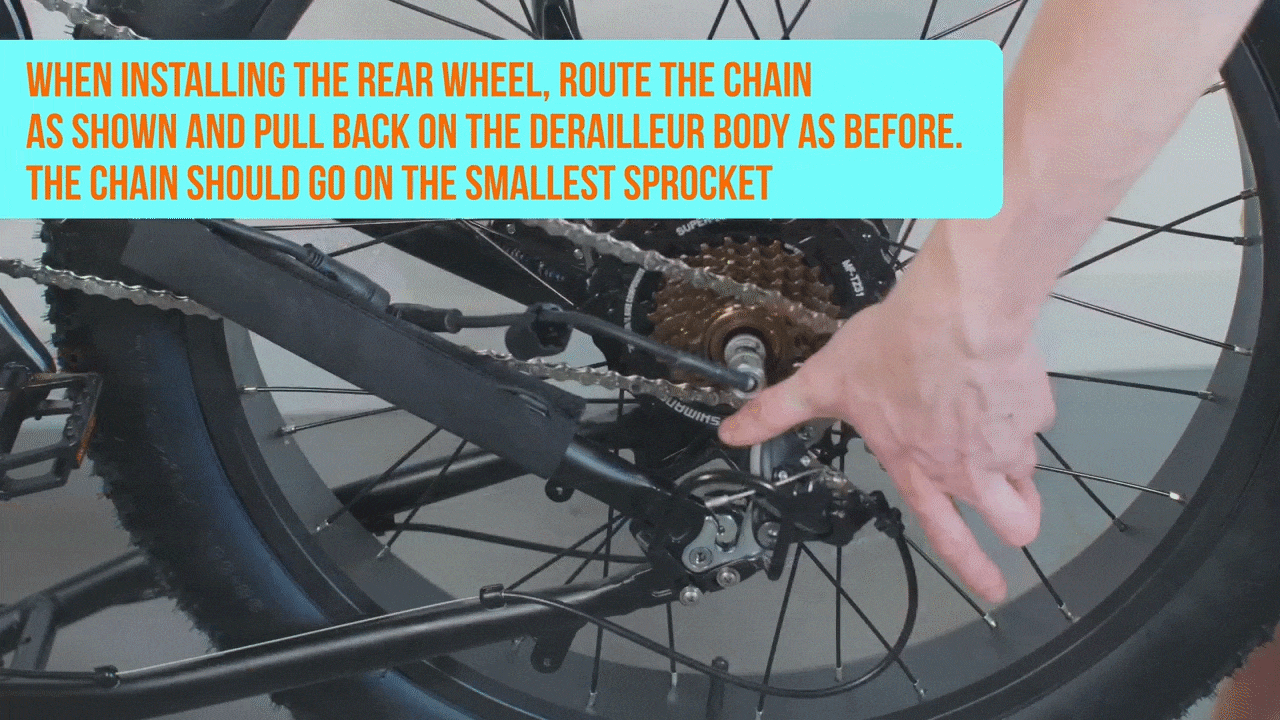
- Check that the torque washer is in the correct position and the brake rotor is in position. Use the photo taken for reference, if needed. The brake rotor should slide between the brake pads in the brake caliper. If there is a gap between the axle and the dropout, use a 10 mm wrench to carefully turn the axle to line up the flat sides with the sides of the dropouts, and adjust the wheel so it is fully seated in the dropouts.
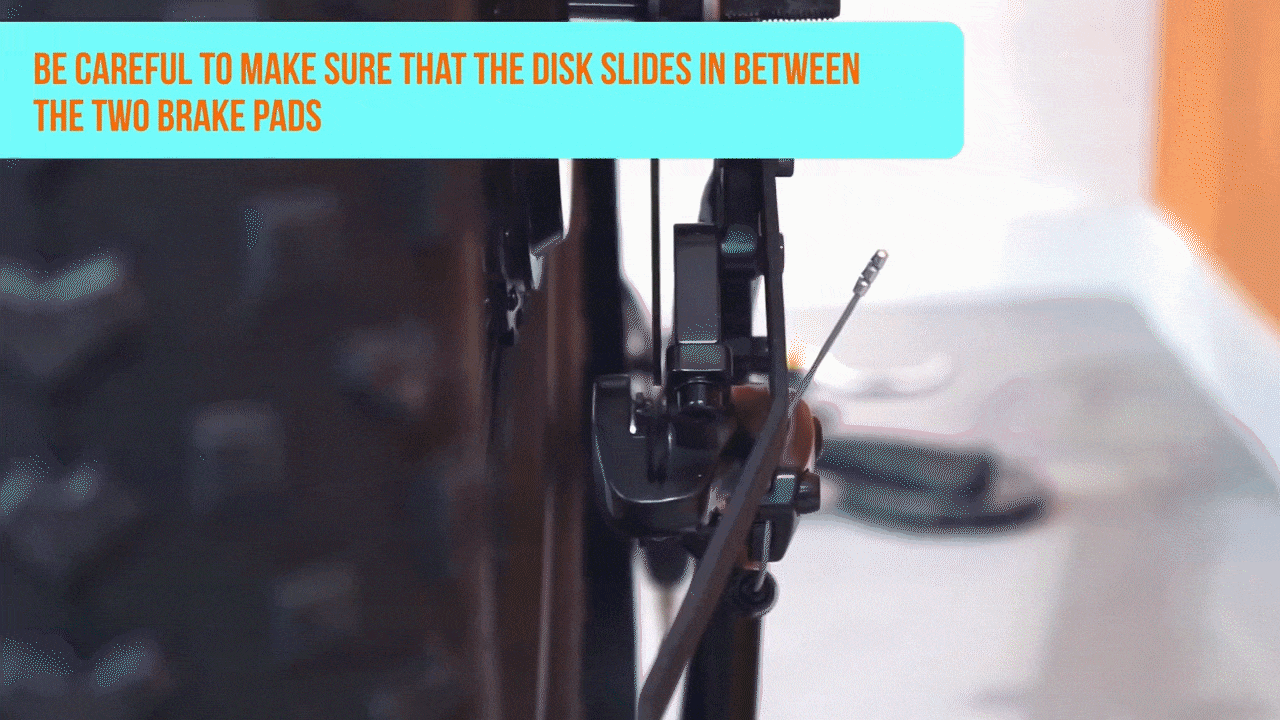
- Install the torque arm bolt. On the brake rotor side, install the torque arm bolt and use a 4 mm Allen wrench torque the bolt to 2-3 Nm. Reinstall the bashguard, if removed. Place the bashguard in position, ensuring the taillight cable runs outside of the bashguard (for 2019 models only), and reinstall the bolts.
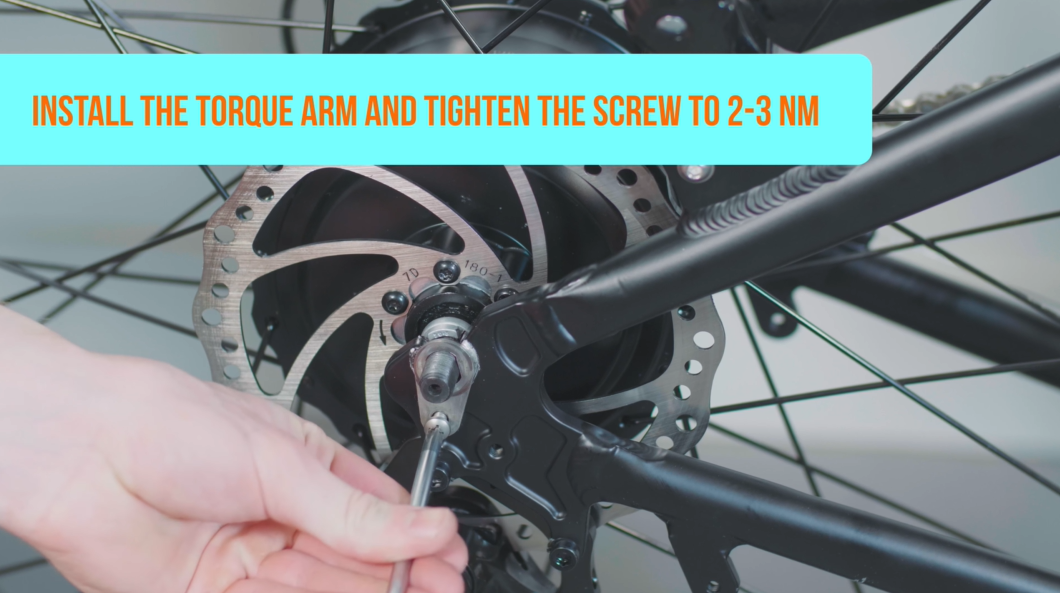
- Tighten the axle nuts. Tighten the axle nut on the brake rotor side first, then check that the derailleur side is still in place in the dropout. Use an 18 mm wrench to torque both axle nuts to 40 Nm.
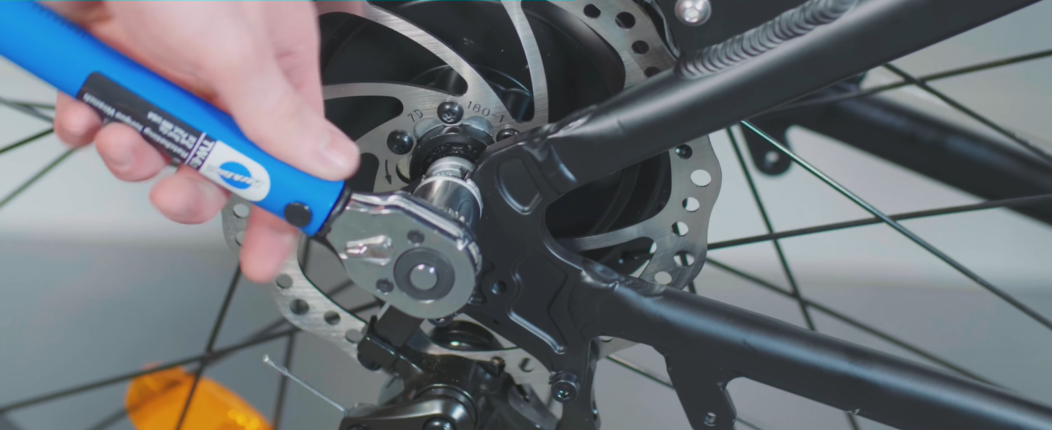
- Plug in the motor connector. Line up the internal notches and pins (and external arrows), and press each side directly together, without twisting, to reconnect. Replace the zip tie and trim it to be flush and smooth.
- Reinstall the battery and test the bike fully before riding.
